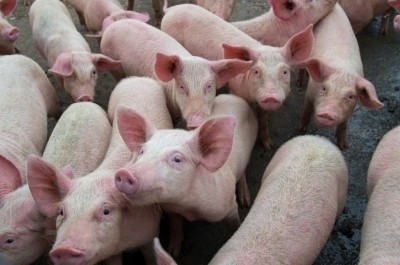Legislative shifts, sustainability demands, and disease pressures ahead for EU compound feed sector

This legislation signifies the EU’s commitment to positioning itself in sustainable trade development while pursuing strategic autonomy, highlights FEFAC president, Pedro Cordero.
Against the backdrop of political and market crises, the EU feed sector grappled with the dual pressures of crisis management and an escalating demand for sustainable feed solutions.
These dynamics were shaped by market fluctuations and regulatory considerations, responding to the adverse impacts of climate change, including droughts and floods, on raw material supply, and diseases like Avian Influenza (AI) and African Swine Fever (ASF) on animal production capacity. The FEFAC leader emphasizes the influence of national policies, spanning greenhouse gas (GHG) reduction targets to nitrate emission regulations, in steering these shifts.
Resource competition
Cordero also notes the conflicting dynamics between increased biomethane production and circular feed availability over the past 12 months.
“Due to stimulus policies, there is a perceived risk that there are financial incentives to divert what we consider to be circular feed resources to biomethane production as a form of renewable energy. FEFAC has initiated discussions with a wide range of stakeholders to discuss the development of an EU Biomass Factsheet to bring more transparency to the discussion.”
EU autonomy
Looking ahead to 2024, Cordero anticipates the EU elections in June, heralding a new mandate for the EU Commission and EU Parliament.
With a limited timeframe for policymakers to finalize legislative proposals, sustainable agriculture discussions under the EU Green Deal will take center stage. 'Strategic dialogues' on the future of European agriculture will commence, with a focus on enhancing EU strategic autonomy and addressing import dependency vulnerabilities.
"The EU membership discussions for Ukraine, Moldova and the Western Balkans should also be seen in this light.”
Plant breeding
A key legislative priority for FEFAC in 2024 is the completion of a regulatory framework for new genomic techniques (NGTs). Acknowledging the complexity of political negotiations on this sensitive file, Cordero emphasizes the importance of a framework that stimulates the adoption of plant breeding innovations in Europe, particularly for plant protein production.
The EUDR, though finalized this year, remains a prominent concern in 2024. Cordero notes the need for clarifications before its December implementation date, highlighting its potential global precedent and impact on soy trade flows.
Green feed labeling
In the realm of environmental footprinting, FEFAC aims to drive discussions on 'green feed labeling' in 2024, leveraging tools like the PEFCR Feed for Food-Producing Animals and the GFLI database.
As the industry confronts disease threats in 2024, the lingering impact of outbreaks such as AI and ASF, which severely affected poultry feed production figures in some member states last year, remains a significant factor to contend with, says the FEFAC president.









